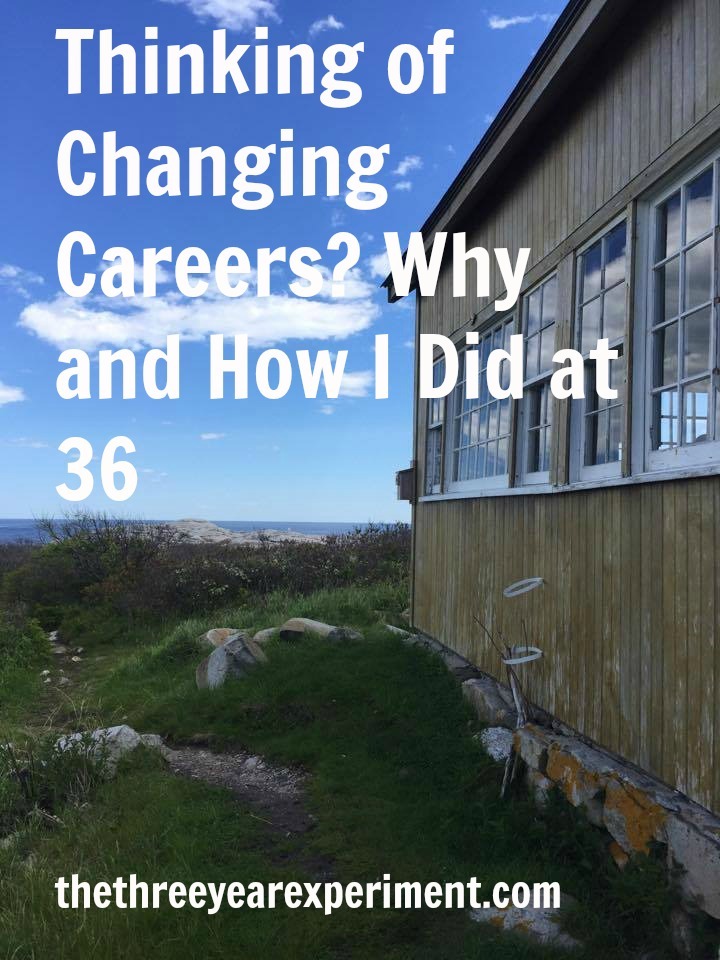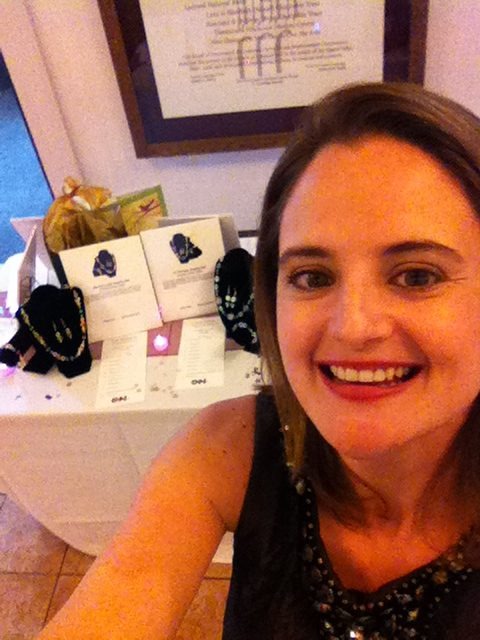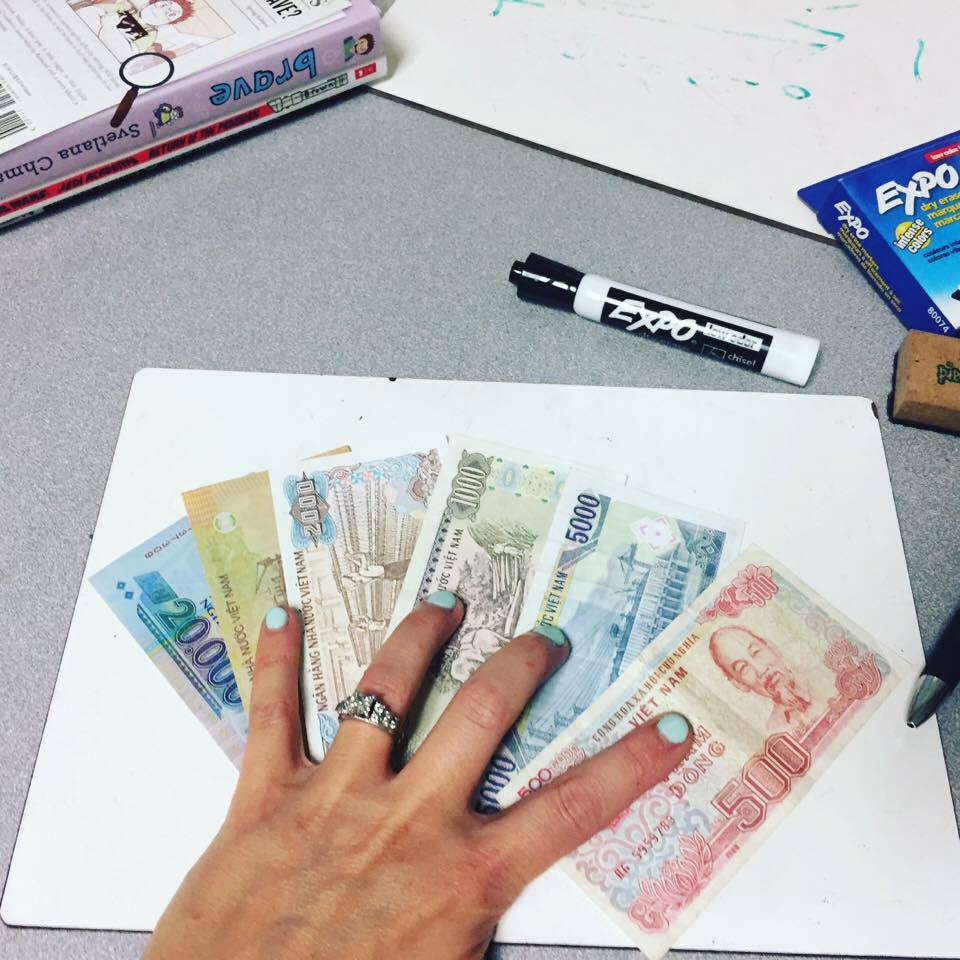Have you ever dreamed of changing careers, but don’t know how to start?
I haven’t. Seriously. Except for my first few years in the workforce, I’ve always worked in marketing or sales in one capacity or another, and I had always loved it. Two years ago, this month, I was a marketing manager for a theater company. But here’s why and how, two years ago this month, I changed careers.

I really liked my marketing job. It was part-time, flexible, and the first real job I’d had in the almost-eight years since my first child had been born. I loved the autonomy, the professional identity, the praise I was getting for a job well done. Everything about the job, basically… except the summers.
See, I worked for an opera company, and the “season,” the time when we staged our three big productions, was the first week of June through the second week of August every year. During the season, my part-time job became a full-time job, and I worked nights, weekends, whenever. I was salaried, so although I could work less during the rest of the year to make up for the summer weeks, I earned exactly the same paycheck through the summer while I worked like crazy.
I put my two boys in camps for most of the summer, and they enjoyed the camps and had fun, but it was a very stressful two months for our family. Plus, the exact time of year that my kids were out of school, the time when we could be enjoying the beautiful New England weather together, was the exact time of year when I was racing around like a chicken with her head cut off. Picking up opera singers, setting out appetizers at concerts, comping tickets, listening to rehearsals, picking up food for the artists, sending out emails and flyers, recording radio ads, putting together our program (it was a non-profit company so I did a bit of everything).

After two years of working “the season,” Mr. ThreeYear had a serious talk with me. We’d mutually decided, after the first Junior ThreeYear was born, that I would stay home with the kids and he would continue to pursue his career. He’d built his career very successfully, and I’d stayed home with the kids and spent lots of time with them, trying to craft them into little people of character. But when our youngest was three, I went back to work, to help us save more, and to keep from going crazy after too many Wiggles videos. We hoped that a part-time job would allow me to drop off and pick up the kids and help them in the afternoons with homework.
(Let me just stop and say: a part-time job for a Type-A personality is really a full-time job crammed into 20 or so hours, at half the pay or less. While I appreciate the ability to work “part-time,” I think employers would attract and retain female employees at a much higher rate if they would allow them to work flexible hours, remotely, at a fair full-time salary. I was the marketing manager for my company who wrote ALL the grants and managed 2/3 of our events, at 20 hours a week. During that time I completely re-designed and re-wrote our website, did a market analysis and redo of our media buys, plus a gazillion other things. It was absolutely nuts. Downtime at work? Forget about it. Never. I barely had time to scarf down food. I am not the only woman I know with this story. I actually have many friends in this exact same situation).
Mr. ThreeYear and I knew I needed another job but there weren’t that many part-time jobs available in our area. I told him I’d wait and look in a couple of months, when I’d rested from the season.
Turns out, I didn’t have to wait long. A few weeks later, the local principal of our elementary school, who knew I was bilingual, contacted me to see if I knew of anyone who might work as an ESL teacher for the school. A chill went down my spine. I called Mr. ThreeYear over to the computer.
You see, before I worked in marketing, I’d moved to Santiago, Chile, and taught English for two years. I had ESL experience.
In her email, the principal specified the number of hours per week (around 15) and rate the school district would pay. She also specified that the teacher they were looking for did not have to be a certified teacher–that because of a shortage of ESL teachers in the state, the teacher could be qualified through a special fast-track program.
I quickly did the math and realized it would pay roughly the same as my marketing job (accounting for the fact that I wouldn’t be working summers). I realized that I could qualify for the position, based on my work history and college majors. Mr. ThreeYear and I talked it over, and decided I should go in for an interview.
It was September, so the school year had just started. I met with the principal and the superintendent, and they agreed to hire me. I would need to complete a background check and fingerprinting, and then they could hire me officially; in the meantime I could work as a substitute (but doing the same job). Once they’d completed the CRB Direct background checks, I would be hired as a contractor, meaning I’d only be paid for the hours I worked. Also, I’d have to get my own insurance. But I could go ahead and start working with the two students currently needing English Language services at the school.
I was on the precipice of a career change, I just didn’t know it yet.
With summers and school breaks off, 15 hours of work a week, and a 5-minute commute working at my kids’ school, the job sounded perfect. Plus, I liked kids and got along well with them. I decided to take the job, gave three weeks’ notice at the opera company, and started working at the school immediately, meaning I was working full time.
The first day I started working at the school, they literally showed me to the office I was to use, told me my students’ teachers’ names, and wished me good luck. I was given no guidance and no information about how to teach the kids. Yes, I’d taught ESL classes in Santiago, but I’d never taught in a school before, and I’d only worked with several elementary-aged students. It was baptism by fire, all the way. I was terrified. But I did it, because the students needed my help, and I had dived head first into this new job, so I had no other choice.
As I delved into the specifics of the certification program, I learned that I would have to take five graduate courses over the next two years to become certified. I visited the superintendent and she agreed that the district would pay for the courses.
Thank goodness for the courses, because without them, I would have stayed ignorant about my new profession. I started classes in January, and learned so much about best practices. Also, because I was so clueless, I contacted other local ESL teachers, who bent over backwards to help me. They answered questions, recommended books and resources, and gently steered me in the right direction. I also sat in on many of their classes, to watch how they taught. I tried to reproduce everything I saw that would work with my students.
I also started working weekly with a mentor, a sixth grade teacher who had worked in ESL in another state. Although she didn’t have that much knowledge about ESL practices in New Hampshire, she had a ton of great information and ideas about how I could help the students, and was a sounding board.
I was 36 years old, and I had changed careers. I hadn’t meant to, but I had done it.
I spent the first year feeling absolutely awful at my job. I was so ignorant and kept making mistakes (like forgetting to request vacation time on the proper form, etc.). I didn’t know how to order supplies, what to do if a younger student needed to use the bathroom, or what the proper procedures were for identifying ESL students.
I had vastly underestimated how difficult a career change would be.
I missed the feeling of being good at my job. I missed my colleagues. I missed the time flexibility, of not always having to be at the classroom at 9:46am, when Special was over. I had new challenges, like working with teachers on helping my kids in their classrooms, when those teachers weren’t interested in adapting their lessons for these students. I wasn’t taken seriously for awhile (I wouldn’t have taken me seriously either; I was green). I had several issues I had to work out with the administration, including where I would be teaching.
Also, I realized I didn’t really love working one-on-one with students. I loved teaching groups of students, but because of the low number of students in the school, I almost always had one-on-one sessions with my pupils. So I had to get used to that, and adapt my teaching style to fit with their individual learning styles.

Lessons learned?
- Don’t make a career change in a day, like I did.
- Ask a lot of questions. Be sure you know what changing careers entails.
- Assume that changing careers will be hard, because feeling like a novice in your 30s is, in fact, hard.
- Assume you will need additional education, and don’t assume it will be paid for. I got lucky, and had five education classes paid for, but I am pursuing my master’s, so that I can really understand the profession and become more expert at what I do. The additional eight or so classes are coming out of my pocket.
I could write boatloads, now that I have two years teaching under my belt. But changing careers at age 36 taught me lessons I never would have imagined it would, and if I had to do it over again, I’m not sure I would. Then again, these two summers with the Junior ThreeYears have been priceless, and working in education has given me different freedoms that I’m adjusting to quite nicely–a slower pace of work, less oversight, more freedom to teach who and where I’d like (I’ve picked up another school and now teach at two different districts).
I’d love to hear if you’ve had a career change recently. What was the process like for you?


I’ve spent my entire career in IT, so I’ve never been through a full-scale career change like you have. But I’ve been through significant changes in my career-different companies, changing roles, new projects. They’re all hard-it’s difficult to go from a role where you pretty much know everything to one where you don’t; it’s hard to change companies and have a whole new set of coworkers/processes; and when you change projects there’s a big learning curve to learn about the new project and the technology and business behind it. But if I go too long without a change I get really, really bored and I’ll start up side gigs inside my day job. So right now, in addition to managing my $10 million IT program I’m also developing expertise in a new software development methodology and participating in a leadership development program. The programs almost over now, so I’m going to need to find another thing to do again. 😛
It’s amazing how much energy you have Liz! 🙂 Your company is lucky to have you! I agree with you about going too long without a change, though. This was one of the pitfalls for me being a stay-at-home mom. I got so bored and ended up volunteering on any and every committee I could find. With teaching, we’ll see: I added a new school after a year. Who knows what this year will bring?
Wow, what a story! I’m still on my first job out of college (5+ years in) so I have yet to go through a big career change. But I have considered what it would be like to make a shift. It kind of scares me, I have become so used to my current employers “way of work”, culture, flexibility, community, etc. Any shift would be challenging to say the least!
Wow–congrats on 5 years in!! I think making changes and pushing yourself out of your comfort zone can be a good thing, but it is definitely hard, and fills you with a bit of self-doubt! Ultimately, I think the change made me stronger and more resilient (I hope, anyway!). But I’m good with no more change for a while! 🙂